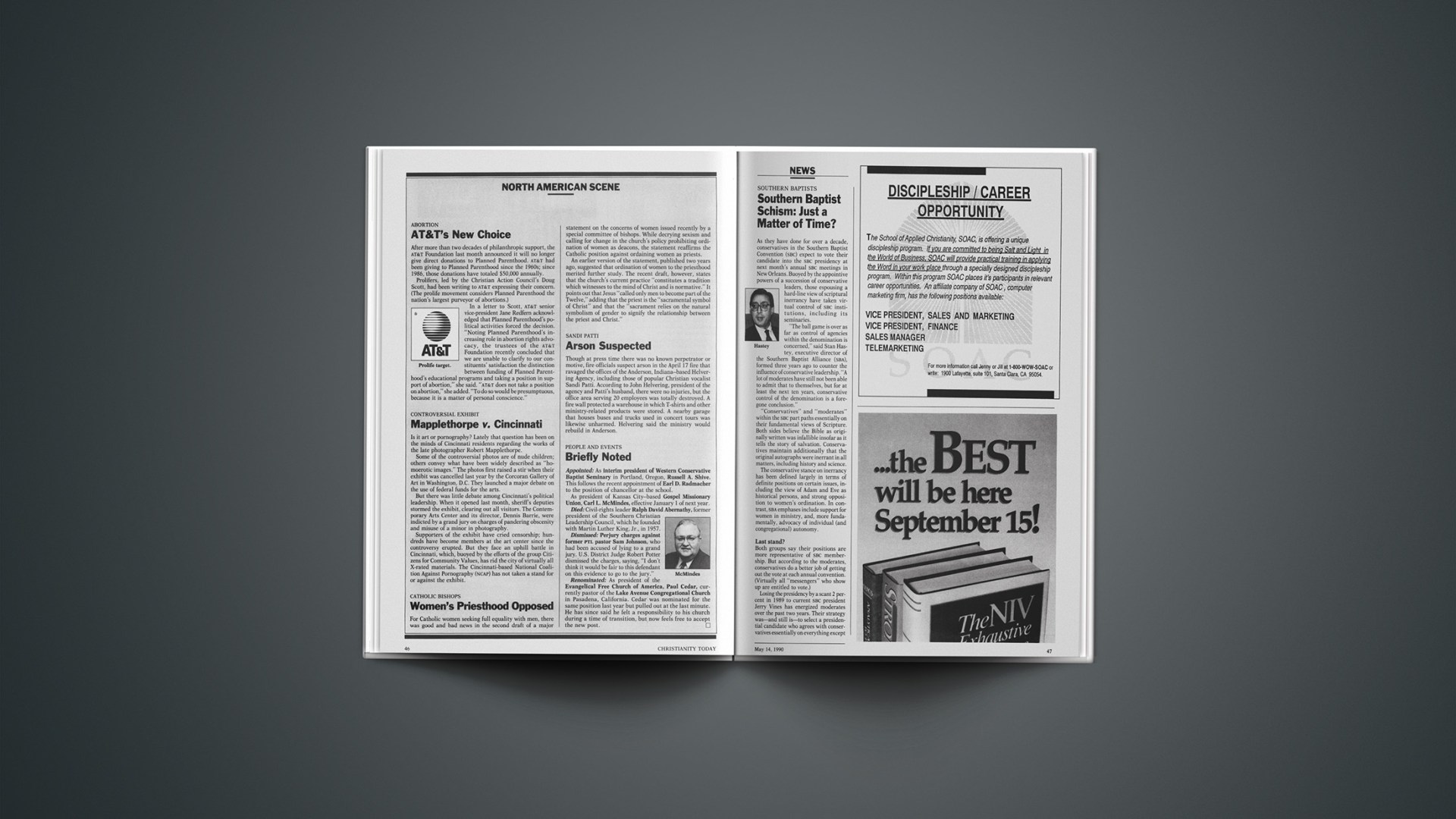As they have done for over a decade, conservatives in the Southern Baptist Convention (SBC) expect to vote their candidate into the SBC presidency at next month’s annual SBC meetings in New Orleans. Buoyed by the appointive powers of a succession of conservative leaders, those espousing a hard-line view of scriptural inerrancy have taken virtual control of SBC institutions, including its seminaries.
“The ball game is over as far as control of agencies within the denomination is concerned,” said Stan Hastey, executive director of the Southern Baptist Alliance (SBA), formed three years ago to counter the influence of conservative leadership. “A lot of moderates have still not been able to admit that to themselves, but for at least the next ten years, conservative control of the denomination is a foregone conclusion.”
“Conservatives” and “moderates” within the SBC part paths essentially on their fundamental views of Scripture. Both sides believe the Bible as originally written was infallible insofar as it tells the story of salvation. Conservatives maintain additionally that the original autographs were inerrant in all matters, including history and science.
The conservative stance on inerrancy has been defined largely in terms of definite positions on certain issues, including the view of Adam and Eve as historical persons, and strong opposition to women’s ordination. In contrast, SBA emphases include support for women in ministry, and, more fundamentally, advocacy of individual (and congregational) autonomy.
Last Stand?
Both groups say their positions are more representative of SBC membership. But according to the moderates, conservatives do a better job of getting out the vote at each annual convention. (Virtually all “messengers” who show up are entitled to vote.)
Losing the presidency by a scant 2 percent in 1989 to current SBC president Jerry Vines has energized moderates over the past two years. Their strategy was—and still is—to select a presidential candidate who agrees with conservatives essentially on everything except the issue of how to treat moderates. Now, however, most observers agree that if the moderates cannot win the presidency next month, they will throw in the towel for the foreseeable future.
According to Hastey, prospects for schism in the SBC are “growing every day.” He added that “the timetable for schism depends directly on what happens in New Orleans.”
But if New Orleans is the moderates’ last chance, it may also be their best chance. For the first time in the history of this dispute, moderates took the political initiative, announcing their candidate, Daniel Vestal, last September. In contrast, conservatives appeared to stumble, first choosing Fred Wolfe before switching to Morris Chapman in February. Campaign appearances by both candidates, which traditionally have not commenced until after Easter, began early this year.
Conservatives have also faced the defection of a former loyalist, Arkansas pastor David Montoya, who lately has revealed in print some less-than-flattering allegations regarding the inner workings of SBC conservative politics.
According to Montoya, who says his conservative view of Scripture has not changed, the current conservative movement was launched out of a legitimate concern that the inerrantist view was not being given a fair hearing in Southern Baptist agencies and seminaries. But that movement, Montoya has written, has degenerated “from one of correction to one of corruption.”
Montoya maintains that conservatives’ original goal has been accomplished and that politics has become at best an end itself, and at worst a means for some to achieve power and prestige.
For example, in the publication SBC Today, Montoya told of an SBC businessman who exploited his connections with advertising departments at radio stations to get fake press credentials for SBC conservatives, including himself. These conservatives in turn went to last year’s annual convention with instructions to “get what they could” on representatives from the moderate camp, including Vestal.
Whether Montoya’s campaign will halt conservatives’ momentum will be determined next month in New Orleans. And so, quite likely, will be the future of the SBC.
By Randy Frame.










